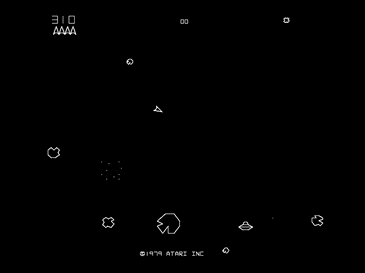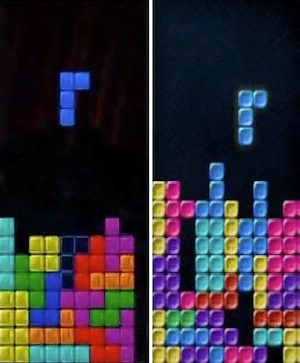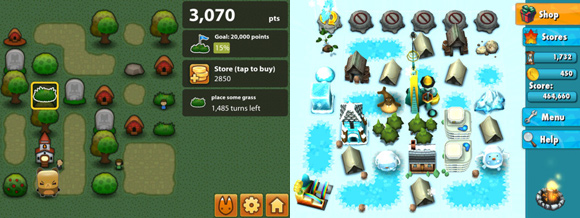What is happening in Epic Games vs Apple? Part two
![]()
The dispute between Epic Games and Apple continues to generate discussion in the video games industry. As LegalPlay, we have already described the origins of the dispute and the lawsuit filed by Epic Games in an earlier post. As promised, we are following the latest reports on the matter. We invite you to read the summary and analysis of the latest reports in the dispute, which have appeared since the previous post.
Unreal Engine on iOS is safe, Fortnite still out of AppStore
As we have mentioned in the previous post, in response to Epic Games’ actions, Apple planned to block Epic’s access to Apple’s developer tools, which would prevent further development of Unreal Engine on iOS and macOS. In reaction to Apple’s announcement, Epic has applied for a temporary restraining order prohibiting Apple from blocking access to developer tools and restoring Fortnite to the App Store.
On August 24th, Judge Yvonne Gonzalez Rogers agreed to the first of two Epic’s motions. The judge prohibited Apple from taking any adverse action blocking Epic Games’ access to Apple’s development program because of the placement of an alternative payment method in Fortnite. As to the motion to restore Fortnite to the App Store, the judge decided not to impose such an order on the Cupertino company.
The judge made the order effective until a decision is made on the preliminary injunction (which is, in simple terms, more “permanent” than a temporary restraining order). A hearing on this subject was held on September 28th – for more information see below.
Google asks for not merging cases regarding Google Play and App Store
In early September, Google reacted to the lawsuits. On September 3, lawyers representing the company from Mountain View filed a motion to the California court not to combine the Epic Games lawsuits against Apple and Google in one proceeding. Google has invoked several convincing arguments in its submission.
Firstly, Google pointed out that other antitrust cases that are already ongoing against Apple and Google are at completely different stages. Secondly, the proceedings against Google also include non-US subsidiaries of Google. Finally, Google argued that the cases differ in substance, as Google and Apple apply a different business model.
The cases have not been joined, therefore Google managed to convince the court. Clearly, such a turn of events works in favor of the company. First of all, this will probably give Google more time to prepare its arguments in its own trial. Regardless of the outcome of the case against Apple, the Internet giant will be able to build its argumentation by pointing out the differences in the terms of service of Android and Google Play Store compared to iOS and App Store.
20-09-03 Google Opposing Co… by Florian Mueller
Fight fire with fire – Apple reacts with a countersuit
On September 8th Apple filed a response to the Epic Games lawsuit in court. In its reply, Apple not only referred to the arguments of Fortnite’s creators, but also decided to file counterclaims.
In its submission, Apple stated that Epic only pretends to be Robin Hood, while the case is “nothing more than a basic disagreement over money”. The company noted the value presence on Apple’s platform for Epic Games, which the developer is now unwilling to pay for. Placing an alternative payment method without Apple’s consent was, in the company’s opinion, not only a breach of the agreement that Epic entered into with Apple, but also damaged the company behind devices bearing the symbol of a bitten apple. Apple argues that Epic Games itself knowingly first attempted to obtain preferential terms and then intentionally brought the damages upon itself, which it is now challenging in court. Interestingly, Apple refers in the motion to Epic Games’ relationship with Tencent (the Chinese giant owns 40% of the company), suggesting that it is the Chinese company that is behind the whole affair.
Apple’s reply is available here.
Coalition for App Fairness
Before the hearing set for September 28th, Epic Games, alongside 13 other companies including Spotify, deezer and Basecamp, announced the creation of the Coalition for App Fairness, an organization directly targeting Apple’s practices, which are the subject of Unreal Engine developers’ lawsuit.
Issues raised by the organization include anti-competitive practices contained in Apple services regulations, the 30% “Apple tax” on almost all iOS transactions and the lack of consumer choice. Microsoft recently responded to the organization’s calls by publishing 10 new app store principles on the Microsoft Store, which reflect those proposed by the Coalition for App Fairness.
Back to the court dispute: trial date set and preliminary injunction issued
On September 28th, the court hearing mentioned above took place. Both parties had a chance to present their arguments in the dispute before Judge Rogers and answer her questions. During the hearing (which could be watched on Zoom), the judge did not make a decision on the preliminary injunction, but on the basis of her remarks, conclusions can be drawn as to her current perspective on the case.
Epic pointed out that when deciding to enter into a dispute with the world’s largest company, he was aware that the fight would be difficult and Apple might want to “take revenge” on the company, so his in-court and out-of-court actions were planned and calculated. Fortnite’s creators argued that the distribution and payment system on iOS can be as open as on computers with macOS.
The judge observed that other parties are also accusing Apple of unfair conduct and this may affect the outcome of the dispute. The judge agreed with Apple’s argument that Epic had brought damages on itself in the dispute. She also pointed out that 30% of platform commissions seem to be a standard in the video games industry, and closed ecosystems such as iOS have existed for decades. On the other hand, the judge agreed with Epic regarding the argument that by adding an alternative payment system, Fortnite’s developers have been able to prove that an In-App Payment system is a separate service.
The decision on the preliminary injunction was made on October 9th. The judge upheld her earlier decision. Apple was ordered not to suspend Epic Games access to the Apple Developer Program because of Fortnite-related activities. However, the game will remain outside of the App Store, as the judge did not impose an obligation on Apple to bring it back.
Judge Yvonne Gonzalez Rogers also announced a schedule of further proceedings in the case. The trial date is set for May 3, 2021. Before the trial there would be a discovery phase, so the parties were given time to collect and present evidence in the case.
In the meantime, parties are still exchanging their replies and argumentation, which they are using to persuade the court. For example, Apple in its most recent response points out that even though Fortnite was removed from App Store, gamers are still able to avoid the Apple commission for in-game purchases. Everyone who installed the game from App Store before it was taken down (and did not uninstall it) can still play it, which includes buying DLCs using payments directly to the Epic Games.
US Congress published the outcome of its investigation against Big Tech
In the meantime, the US Congress has published a report concluding the investigation against Google, Amazon, Facebook and Apple concerning potential monopolistic practices.
The report directly refers to the Epic Games dispute with Apple and Google. The Committee on the Judiciary of the House of Representatives states that both companies are using their dominant position to impose high charges on mobile game developers and are blocking alternative payment systems.
It is also worth noting the comments of former Apple App Store director, Phil Shoemaker, included in the report. Shoemaker believes that the amount of commission charged by Apple does not have much to do with the costs incurred, and that the Apple Arcade service, present on the App Store, violates the same Apple’s guidelines, which Cupertino company refers to when blocking access to services such as Microsoft xCloud and Google Stadia. Apple Arcade (as well as Google and Microsoft services) provides access to a wide range of games in exchange for a monthly subscription.
The Commission also made recommendations. Among the Recommendations included, among others, the introduction of requirements prohibiting companies from forcing their own services, greater government control over the acquisition of other companies by Big Tech, the strengthening of antitrust regulations and broader control of the Congress over the activities of companies from the Silicon Valley. The recommendations are non-binding, but they indicate an increasingly strong change in the US authorities’ approach to operations of Big Tech, which includes Apple and Google.
Summary and analysis
In a nutshell, recent events can be summarized as follows: the dispute continues and is only just beginning to heat up, Fortnite remains outside the App Store and developers of games and applications using Unreal Engine on Apple devices can rest easy.
From the decisions and statements made by Judge Yvonne Gonzalez Rogers to date, it can be concluded that the judge is currently more inclined to rule in favor of Apple. It will be quite a challenge for Epic Games to convince the judge. However, it may turn out that the public discussion the case generates might be enough to make the changes that Epic argues for, if the discussion does not end.
In a broader context, it is worth to notice that regardless of the final outcome of the litigation (which may last for many years), dark clouds are gathering over Apple and other Silicon Valley giants. Both American and European authorities are beginning to see how much strength and impunity these companies have gathered and the need to regulate them.
The first consequences of the dispute on the situation in the industry can already be observed. In addition to the abovementioned rules introduced on Microsoft Store, Redmond company also announced a plan to revise the rules on the Xbox platform. Google, in turn, announced that it will make it easier to use alternative application stores (such as Epic Games Store) in the next version of Android. It seems that both corporations consider the forced change of the rules as feasible and decided to apply the first changes in order not to become the subject of further criticism.
The changes made in the direction proposed by Epic Games seem to be positive for the video game industry. The conclusions expressed in the previous post on LegalPlay remain applicable. Bigger competition in the mobile game distribution markets, including in-game payments, should result in more money flowing to the industry’s accounts (at the expense of platforms), enabling gamedev to grow even faster. It may also turn out that the changes will affect console markets as well, although in this case the situation is much more complicated, as console manufacturers often sell their devices at prices which are close to production costs, making their profits almost exclusively from selling console games.
One thing is certain: both sides are facing a long court battle. We will continue to follow and report on the latest developments in the case. To stay up to speed, we encourage you to visit our website regularly. If you have any question about the topic, feel free to ask us!
Main image: © Adobe Stock/Epic Games





